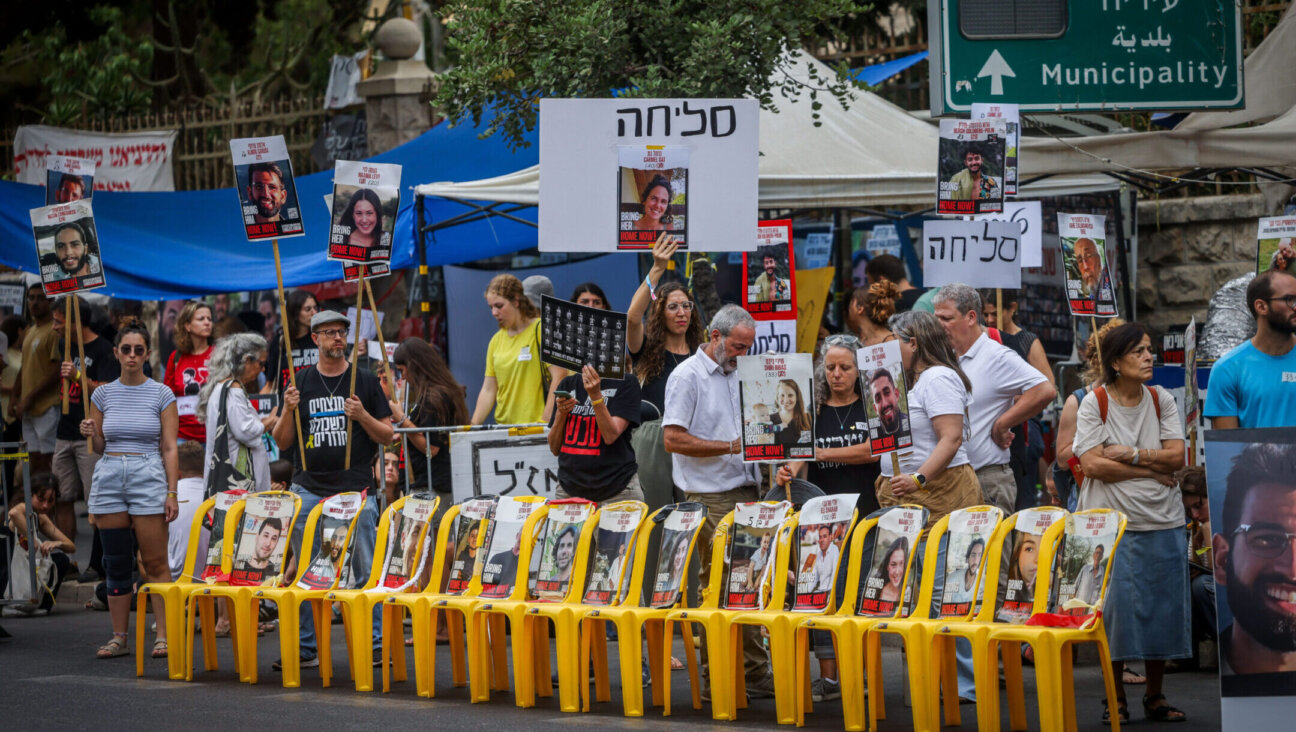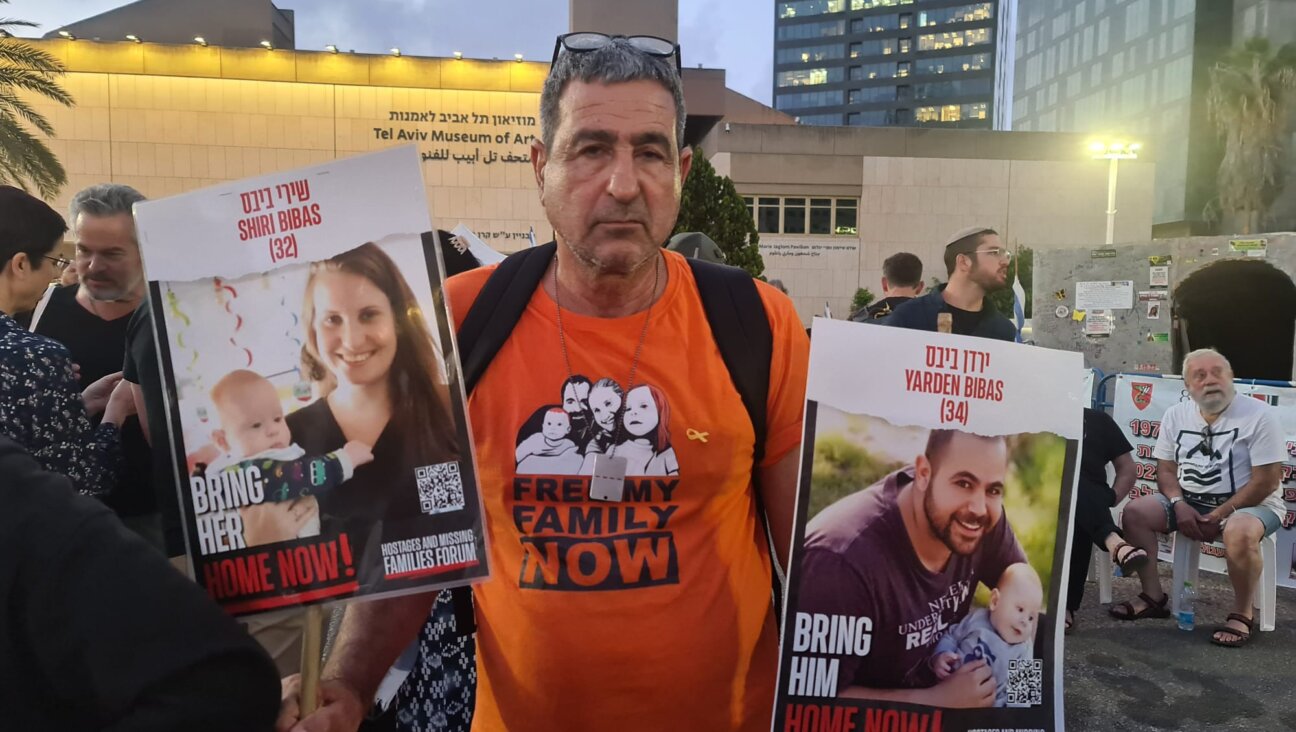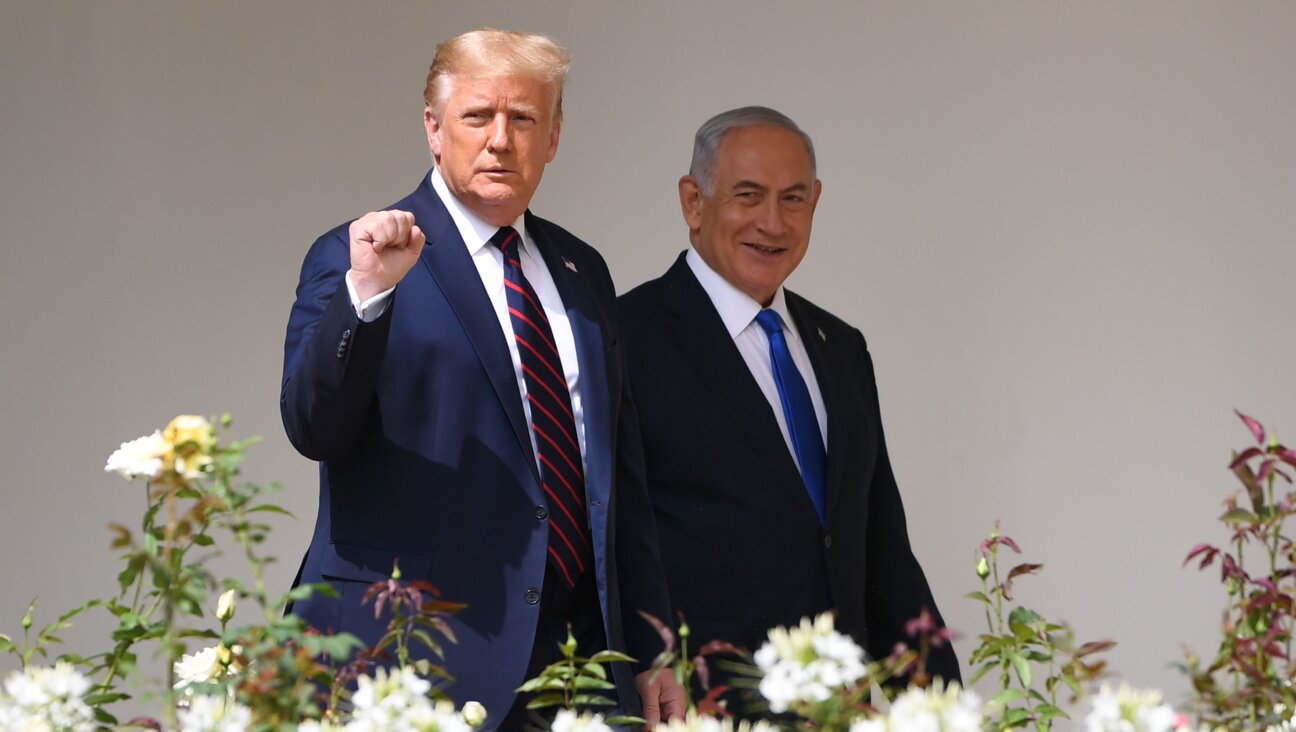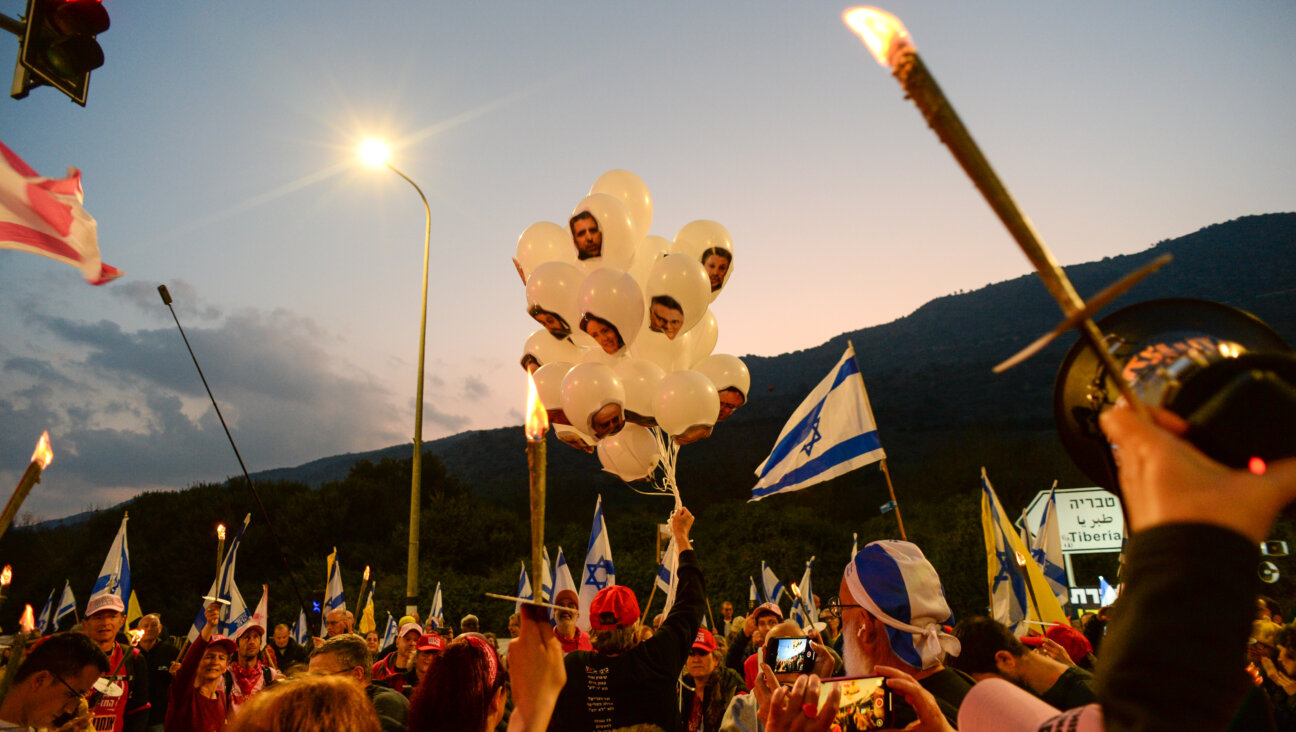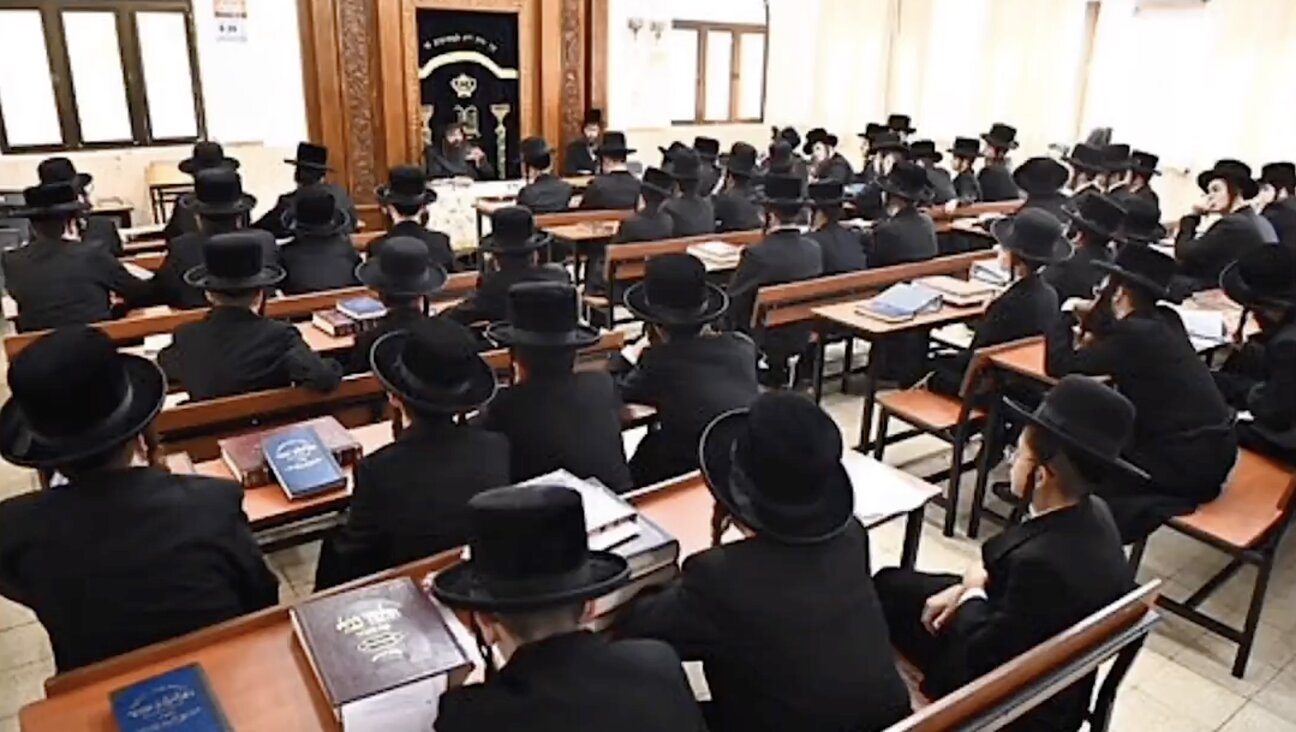Hamas reportedly rejects 2-month ceasefire as White House, Qatar say talks are ‘serious’
Hamas has rejected what Israel has laid down as red lines, including the removal of Hamas’s leadership from the Gaza Strip
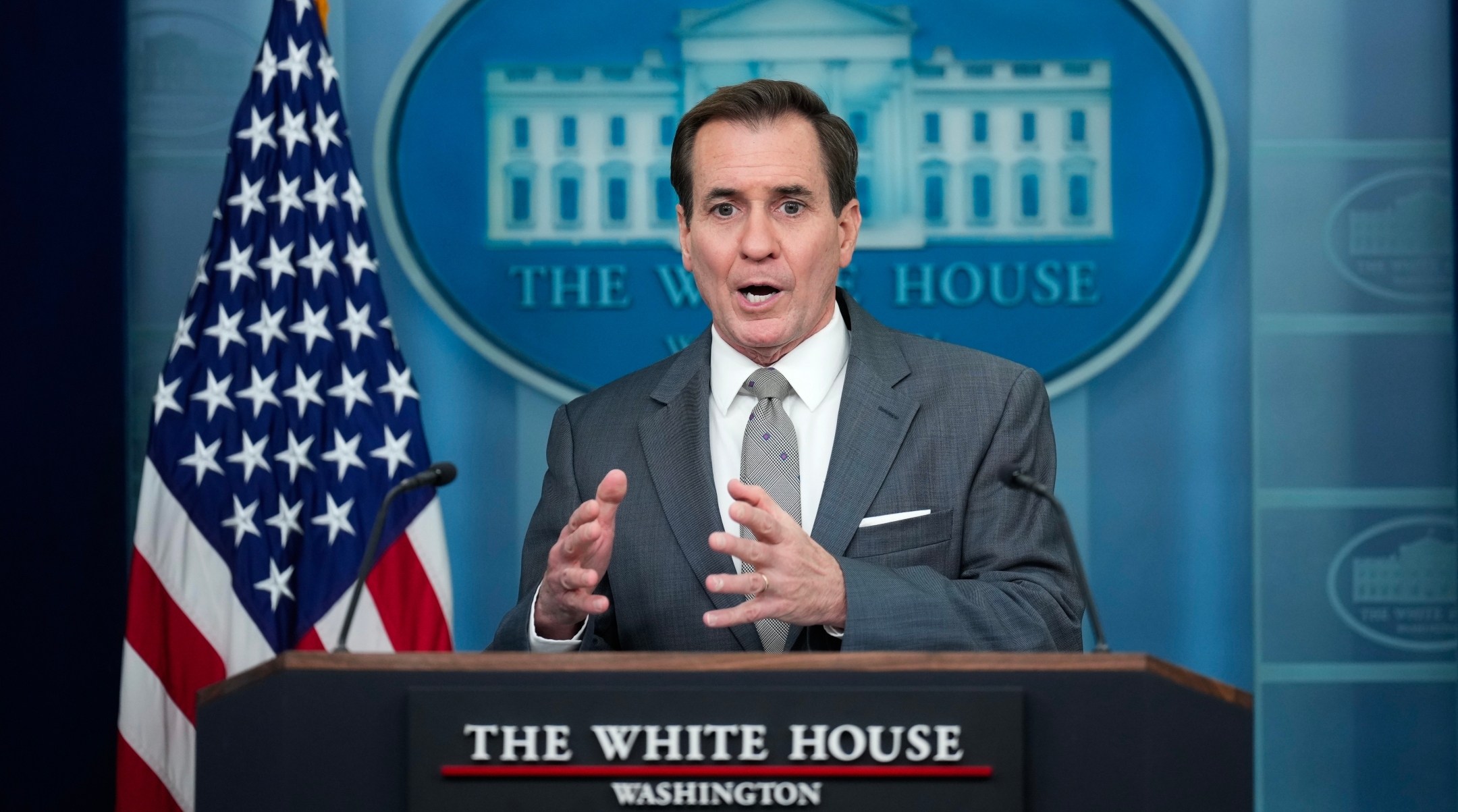
Coordinator for Strategic Communications at the National Security Council John Kirby takes questions during the daily press briefing at the White House, Jan. 23, 2024. (Drew Angerer/Getty Images)
WASHINGTON (JTA) — Hamas reportedly rejected an Israeli offer for a two-month ceasefire in exchange for the release of hostages held in Gaza, even as top U.S. and Qatari officials said talks aimed at an extended pause in the war are “serious.”
On Monday, Axios reported that Israel proposed the pause of up to two months, during which it would release Palestinian prisoners held on security offenses and draw down its troop levels in Gaza while Hamas released all 136 hostages it is holding. CNN reported that an offer by Israel would include the removal of Hamas’ leadership, and that of other terror groups, from Gaza.
But subsequent reports quoted officials in Egypt, which is also a party to negotiations, saying Hamas rejected anything less than a permanent ceasefire and the full withdrawal of Israeli troops, and would not countenance the exile of its leadership.
Hamas terrorists invaded Israel on Oct. 7, killing more than 1,200 people, mostly civilians, brutalizing thousands and abducting more than 250. More than 25,000 Palestinians have been killed since Israel launched counterstrikes. Israel says about a third of the casualties are combatants. More than 200 Israeli soldiers have been killed in the invasion of Gaza.
The war has devastated much of Gaza and displaced the vast majority of its population of 2.3 million people. International health officials say the population is on the verge of starvation. McGurk is also negotiating terms for the entry of increased humanitarian assistance into the strip.
Within Israel, debate over the war effort has grown more heated, especially as 24 soldiers were killed on Monday, the Israeli military’s deadliest day since Oct. 7. The relatives of the hostages are leading a protest movement pushing the government to agree to a deal for their release, and some of the relatives interrupted a meeting of lawmakers to demand that the government do more to secure their loved ones’ freedom.
Israeli and Hamas officials did not comment on this week’s reports, but U.S. and Qatari officials said talks were serious, while declining to address the reports’ specifics.
John Kirby, the National Security Council spokesman, said Tuesday that Brett McGurk, President Joe Biden’s Middle East coordinator, is seeking a deal while he tours the region. McGurk is currently in Egypt which, as the only other nation bordering the Gaza Strip, has a key role in bringing together any deal.
“One of the things he’s in the region talking about is the potential for another hostage deal, which would require a humanitarian pause of some length to get that done, and that’s definitely on the agenda,” he said, while declining to confirm the specifics of the reports. “Conversations are very sober and serious about trying to get another hostage deal in place.”
Under a deal brokered by Qatar, Egypt and the United States in November, Israel and Hamas ceased fire for about a week, exchanging more than 100 hostages for roughly three times that number of Palestinian prisoners. A handful of hostages were separately released or rescued earlier, and at least three hostages were mistakenly killed by Israeli fire. At least 20 hostages are believed to be dead; the deal Israel proposed would include the return of their bodies.
Majed Al Ansari, the Qatari foreign ministry spokesman, said the talks were advanced enough that he was optimistic. Qatar is one of a handful of countries that has extensive dealings with Hamas, whose political leadership lives in Qatar, and which has funded the movement.
“I can’t comment on the specificities of the mediation as it is going on but what I can say is that we are engaged in serious discussions with both sides, we have presented ideas to both sides, we are getting a constant stream of replies from both sides, and that in its own right is a cause for optimism,” he said.
This article originally appeared on JTA.org.
A message from our Publisher & CEO Rachel Fishman Feddersen

I hope you appreciated this article. Before you go, I’d like to ask you to please support the Forward’s award-winning, nonprofit journalism so that we can be prepared for whatever news 2025 brings.
At a time when other newsrooms are closing or cutting back, the Forward has removed its paywall and invested additional resources to report on the ground from Israel and around the U.S. on the impact of the war, rising antisemitism and polarized discourse.
Readers like you make it all possible. Support our work by becoming a Forward Member and connect with our journalism and your community.
— Rachel Fishman Feddersen, Publisher and CEO







